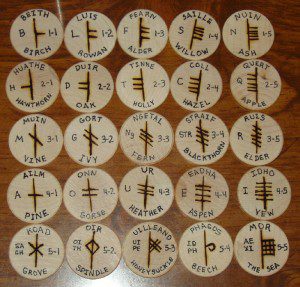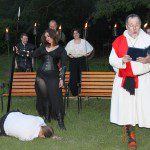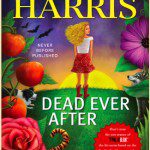Jason Pitzl-Waters at The Wild Hunt has a piece on the missing Ohio women who were rescued this week and the fact that noted psychic Sylvia Browne had told the mother of one of the missing women that her daughter was dead. Jason says:
Were I in Browne’s position I would feel endlessly tormented over the people my predictions have hurt. I think incidents like this should call us collectively to examine how we practice, and in what contexts do we feel comfortable handing out predictions … Rather than become defensive, and work to distance ourselves from the hucksterisms of Browne, I think this is a call to introspection. How do we prevent ourselves from becoming the things that Browne now embodies to an outraged public?
While Browne is not a Pagan and psychic predictions are not part of most Pagan religions, many Pagans do practice some form of divination. Oracles and omens are part of our ancient heritage and seership is a part of many forms of Druidry, including both OBOD and ADF. I agree with Jason that we need not to explain how we’re different from Browne but to lay out the boundaries and safeguards that will prevent us from becoming her.
If you practice divination in any form I recommend you read the American Tarot Association’s Code of Ethics and the Tarot Certification Board of America’s Client Bill of Rights. Both organizations provide clear, helpful guidelines for client interaction and are applicable to any divination system, not just Tarot.
I read Tarot and Ogham (though not extensively), I take omens when they’re presented to me and I occasionally have dreams I can only describe as prophetic. I know what it’s like to feel something in your bones and know it’s true. Those feelings are right most of the time. Most, not all – sometimes I’m wrong. If you’ve done this more than once or twice you’ve been wrong too. If you’re a seer you have the responsibility to represent your craft honestly and accurately, and that means explaining that you can’t be certain about anything.
My Tarot teacher says “never predict a death.” I say “never tell someone their spouse is cheating on them.” In either case you can’t be sure and the consequences of being wrong are severe.
The general public (and that includes your family and friends) gets most of its ideas about divination from Hollywood. In reality, divination is not Google and you rarely get precise answers. You know you get themes and patterns and concepts – make sure the people you read for understand that.
People consult seers because they’re nervous about the future and they want a definitive answer. You can’t give them a definitive answer. And that’s a good thing.
“Before I draw nearer to that stone to which you point,” said Scrooge, “answer me one question. Are these the shadows of the things that Will be, or are they shadows of things that May be, only?”
Which is correct, free will or determinism? As with so many things, the only completely honest answer is “we don’t know.” But we do know this: if you believe the future is fixed you are much less likely to take positive action. If you get a message through divination that you don’t like, be like Scrooge and make a change. If you’re reading for someone else and you see trouble for them, encourage them to make a change.
In Danse Macabre, horror master Stephen King explained how not showing the monster is scarier than letting it be seen:
after mounting apprehension about the fear we are about to confront, somebody eventually has to respond to the scratching sound at the door and throw it open — only to reveal, before our terrified eyes … a ten-foot-bug! And no sooner do we register that fear – hairs standing erect on our necks, gooseflesh crawling up our arms – than we begin assessing and processing it; in an instant, an equal-and-opposite reaction sets in, tinged with disappointment: “Oh,” we think. “A ten-foot bug. That I can deal with. I was afraid it was going to be a hundred-foot bug!”
Humans are remarkably resilient creatures. We can defeat ten-foot bugs, we can survive illness and injustice and betrayal and go on to live happy, productive lives. We can escape toxic religions and abusive relationships and go on to find meaning and connection and love.
As seers, we can’t tell people what’s behind the door. What we can do is give them the encouragement and the confidence to deal with whatever is behind the door.
So what do you do if you’re in Sylvia Browne’s position and someone asks you “tell me if my daughter is dead”? If someone asked me that, I’d politely and gently decline to answer. If it was a close friend asking who wouldn’t take no for answer, or if I felt divinely obligated to answer, I’d start with “I believe” and end with “but I can’t be sure, and I might be wrong.”
Seers are accountable: to ourselves, to our communities and traditions, to our gods or guides or spirits, and most importantly, to those for whom we see. May we always use our skills responsibly and ethically.
















